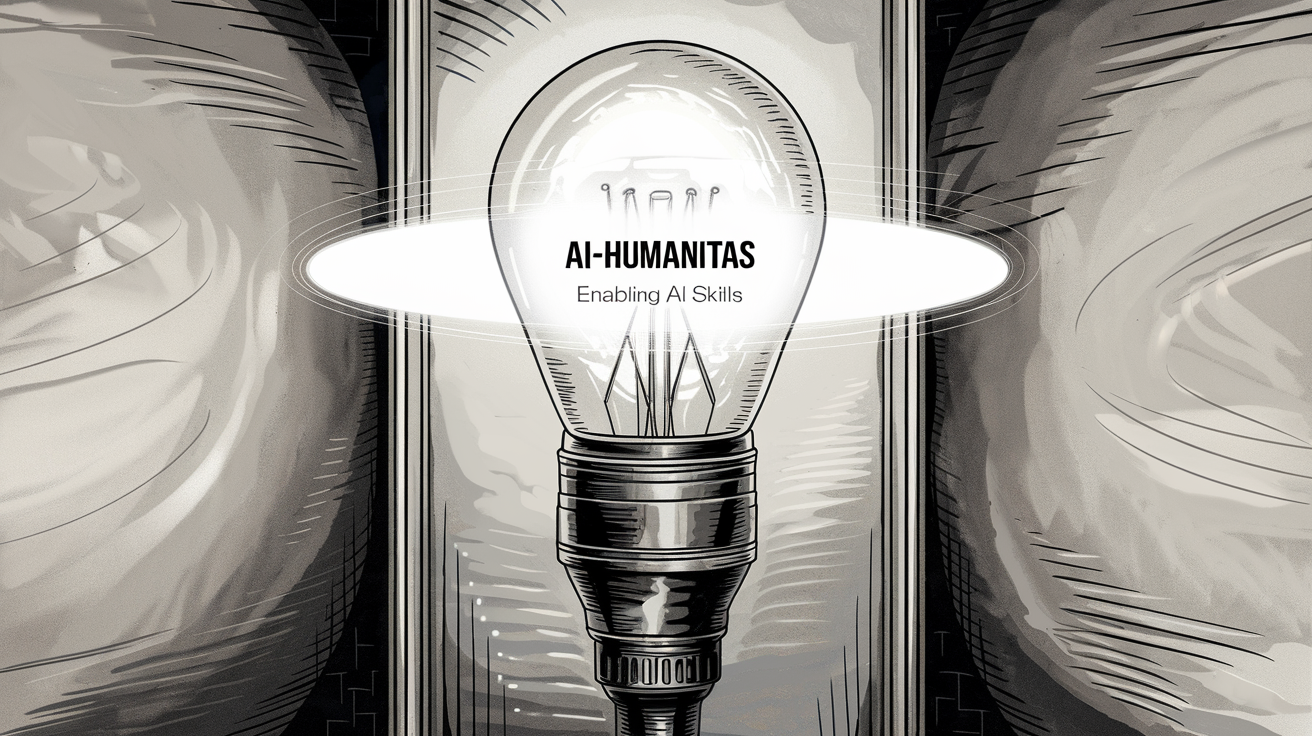AI chatbots can speed up writing, but humans still need to add context and empathy

The "AI Humanitas - Enabling AI Skills" series aims to make AI use commonplace for everyone in a company. To achieve this, we need to break down inhibitions and cultural barriers, explains guest author Dr. Wolfgang König.
Artificial intelligence (AI) is no longer just for scientists or IT experts. In recent years, it has become a key technology influencing many areas of our lives - from automated product recommendations when shopping online to AI-powered political campaigns. How does AI affect us, and how should we approach it?
The "AI Humanitas - Enabling AI Skills" series aims to strengthen the human perspective, focusing on values and experiences. An "IT focus" alone isn't enough to benefit from AI. The goal is to lower barriers and improve cultural understanding of AI use for everyone in the company.
Can AI save democracy
In a report titled "Can AI save democracy?", German journalist Linda Zervakis explored how AI might change politics. She was assisted by "AI Linda", her personal AI avatar. Together, they traveled across Germany before state elections in Saxony and Thuringia.
During her trip, Zervakis spoke with politicians like Jens Spahn (CDU) and Lars Klingbeil (SPD), as well as voters, to gauge how AI could impact the political landscape.
While the idea of AI "saving" democracy was exaggerated, the report highlighted the human factor: "My fear of AI has lessened through working with it. I see the dangers, but I can now clearly see the opportunities too. Artificial intelligence is here to stay and will change many things. We have no choice but to engage with it," says Zervakis.
Focus on people - AI Humanitas
When dealing with AI, it's not just about technology, but also about acceptance as a key to success. Introducing new technologies into daily life has always been challenging. Remember the early days of computers: what we take for granted today - writing emails, creating spreadsheets, or designing presentations - was once met with uncertainty and many questions.
The situation with AI today is similar. But the good news is that you don't need to be an IT expert to benefit from AI. It's about seeing AI as a support tool that handles routine tasks, giving us more time for creative and strategic work. Using AI chatbots like ChatGPT, for example, can significantly speed up writing reports or emails. While the chatbot provides quick and precise answers, it's up to the user to add human context and empathy.
Using AI is the key skill of the future
A main goal of "AI Humanitas" is to lower the barrier to using AI. Many people still have reservations about new technologies, especially those involving artificial intelligence. These fears often come from the idea that AI could be complex, hard to understand, or even threatening.
But it doesn't have to be that way. The idea is that everyone - regardless of their technical background - should be able to use AI in their daily work. Being able to use AI is a key future skill that needs to be developed not only in schools but especially in everyday life.
Find out why this is important in episode 2 next week, and why AI can be a burnout risk in episode 3.
AI News Without the Hype – Curated by Humans
As a THE DECODER subscriber, you get ad-free reading, our weekly AI newsletter, the exclusive "AI Radar" Frontier Report 6× per year, access to comments, and our complete archive.
Subscribe nowAI news without the hype
Curated by humans.
- Over 20 percent launch discount.
- Read without distractions – no Google ads.
- Access to comments and community discussions.
- Weekly AI newsletter.
- 6 times a year: “AI Radar” – deep dives on key AI topics.
- Up to 25 % off on KI Pro online events.
- Access to our full ten-year archive.
- Get the latest AI news from The Decoder.